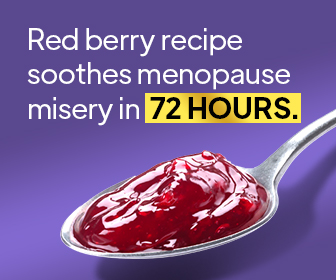We may think of memory like a filing cabinet where we store information, but that is not how it works. Actually, it’s more like plugging a computer into the ethernet where the strength of the network determines how much we remember. So, perhaps this analogy can teach us how to improve memory.
Each time we “plug in” a memory, we activate a network of nerve cells, neurotransmitters, and connections. These systems operate constantly with the help of the foods we eat every day. How do we keep those systems strong? And, most importantly, we want to know how to improve memory!
The right nutrients for memory, from foods, vitamins and supplements, all protect your brain’s most essential function. These help keep your brain’s memory center strong for daily tasks while protecting it from decline in the future.
This article explains how to improve memory and strengthen our “network connections” through vitamins for memory, memory supplements, and foods that improve memory. So, these tips will keep your neurotransmitters working to give it the boost you need!
How to Improve Your Memory (& Say Goodbye to Forgotten Keys!)

Before we go into detail about how to improve memory, let’s take a quick look at how it actually works.
Memories are created in your brain. Within your brain lies billions of nerve cells called “neurons”, that are connected by trillions of synapses.[1] Synapses act as the channels of communication between neurons, and neurotransmitters help carry messages along these channels.[2] You can think of neurons as telephones, synapses as electrical wires, and neurotransmitters as the electricity that runs through the wires. Your brain is constantly firing electrical pulses between neurons as you experience the world around you. And, these electrical pulses are charged with the various facets of our memories.
Fun Fact: Short-term memory has a really limited capacity. It usually starts to decay in 5-10 seconds, and in that time, we can’t really process more than seven things.
So first, we take in information about the world around us and our experiences within it. Then, we hold onto those experiences in our short-term memory. And finally, some of those experiences get relayed into our long-term memory. It’s this process that we try to influence and improve on. We can try to better this process in our brains by eating foods that improve memory, and taking memory supplements or vitamins for memory. It’s this process that helps keeps our brains working in good health as we grow old.
Short-Term Memory

Short-term memory – also known as working memory – is what we use to think and form conclusions. This occurs before a memory gets stored as part of our long-term memory.
Short-term memory has a really limited capacity. It usually starts to decay in 5-10 seconds, and in that time, we can’t really process more than seven things.[3] If you list ten random objects out on a piece of paper, take 10 seconds to try and memorize them, wait 30 seconds then try to write them out again, chances are that it’ll be quite hard to do! In addition, if you don’t make a conscious effort to remember those objects (e.g. repeating it to yourself over and over), you probably won’t remember many of them the next day.
Why? When we work to memorize/remember things, our neurons are constantly firing signals to each other through the same synapses. Once we stop making the effort to remember, we cease transmitting this impulse between our neurons.[4] Thus, when we forget things from our short-term memory, it simply means that one of our synapses no longer transmits that impulse. These forgotten pieces of our short-term memory are excluded from our personal experience, and thus, our long-term memories.
Long-Term Memory

The hippocampus is a part of our brain that relates short-term memory to long-term memory.[5] While short-term memories are created by neurons firing signals to each other, long-term memories are created through physical changes in your neurons. When you learn something over time, new neural networks in your brain can be created, and existing ones altered or strengthened. With repeated use, these networks become stronger, thus improving your memory.
Fun Fact: Between our 20s and our 80s, our processing speed and memory recall are steadily and constantly in decline.
For example, a person who practices the violin four hours every single day, will be much better than someone who practices only one hour a day, once a week. As you repeatedly practice a particular piece of music, the same neurons are firing over and over again over time, making those neural networks stronger. This repetition is what helps you retain memory.
When these neural networks are weakened, we lose our long-term memory. We can also lose long-term memory when new neural networks are formed over old ones.[6] More and more research now shows that the types of food we eat can actually help in the process of creating, strengthening, and retaining memory.
Why Bother with Boosting My Memory Now?

Between our 20s and our 80s, our processing speed and memory recall are steadily and constantly in decline.[7] Our synapses naturally weaken over time. And, to add to the matter, we never develop new synapses. So, we must preserve our synapses to keep our memory function healthy while we have it. And, if we don’t take care of it in the first place, it becomes harder to preserve or reverse once we are old.
Fun Fact: More and more research now shows that the types of food we eat can actually help in the process of creating, strengthening, and retaining memory.
However, our memory synapses also weaken due to disease or neurotoxicity. Neurotoxicity is caused by the foods we eat. So, to defend against memory loss and to preserve it for the future, we can rely on the foods we eat to strengthen and build strong synapses. But, remember, this coin has two sides: the foods we eat can also weaken our synapses, thus weakening our ability to retain memories, too.[8]
And, the added bonus is that good memory function serves us today as well as tomorrow! We do better on tests, remember things at home or work, and generally live better lives when we have a better memory.
Thus, the key to continued good brain health and improved short-term memory is prevention. Building its power today means less memory loss tomorrow.
3 Vitamins for Memory Improvement
Want to know how to improve memory with the right vitamins? There are a lot of different vitamins for memory on the market today, and they all seem beneficial. However, the three listed here are essential. Truly, these are the vitamins that your brain actually uses to create memory.
Calcium
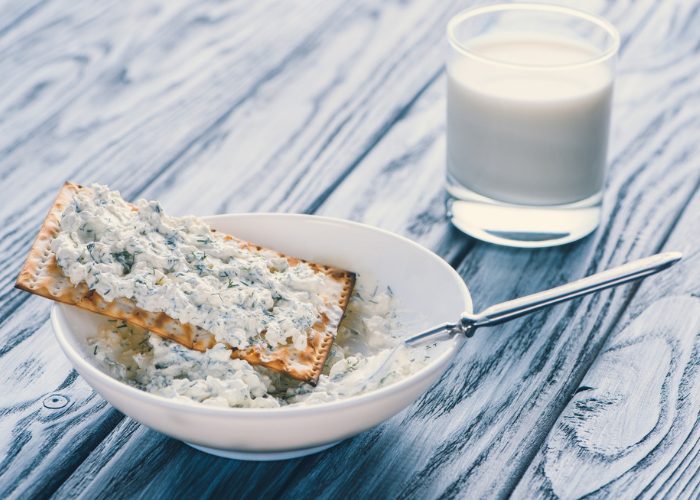
- Helps with: Short-term memory
- Dose: 2,500mg per day for adults
- Foods high in calcium: Mainly dairy products such as milk, yogurt, or cheese. You can also try calcium-fortified products like fortified soy milk, or fortified orange juice.[9]
What you need to know
Calcium is known for keeping our bones and teeth in good shape for our lifetime. However, did you know that it is also a remedy for improving memory?
Research has shown a link between calcium reduces our ability to create memories.[10] It is contained within the neurotransmitters in your brain and helps keep your memory-creating synapses and neurons working properly. A lack of calcium has been shown to impair memory, and conversely, sufficient calcium intake has been shown to improve memory.[11]
Yogurt is one of the best (and most delicious!) sources of calcium. It’s also easy and cost-efficient to learn how to homemade yogurt, so try whipping some up today!
Vitamin D
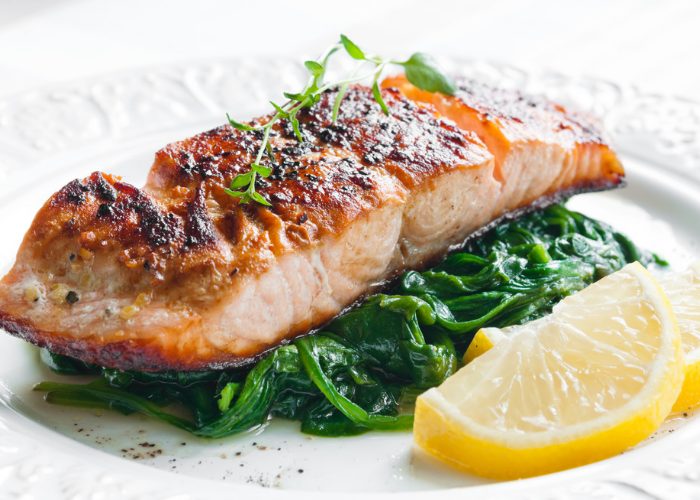
- Helps with: Long-term memory
- Dose: 2,000 IU daily
- Foods high in Vitamin D: Fatty fish (salmon, herring, mackerel, sardines), cod liver oil, chanterelle mushrooms, eggs, and fortified cereals.[12]
What you need to know
In one particular seven-year study, 70 women with Alzheimer’s all had low vitamin D levels.[13] Moreover, an analysis of several similar studies found vitamin D insufficiency or deficiency in over half of the participants with memory loss.[14]
In another study conducted recently, 2,206 dementia-free subjects with even a moderately deficient level of vitamin D resulted in the decline of visual memory.[15]
Think cooking fish at home is too hard? Once you learn some tips for cooking fish perfectly, you’ll see that it really isn’t that difficult with a bit of practice!
Vitamin B12/Complex
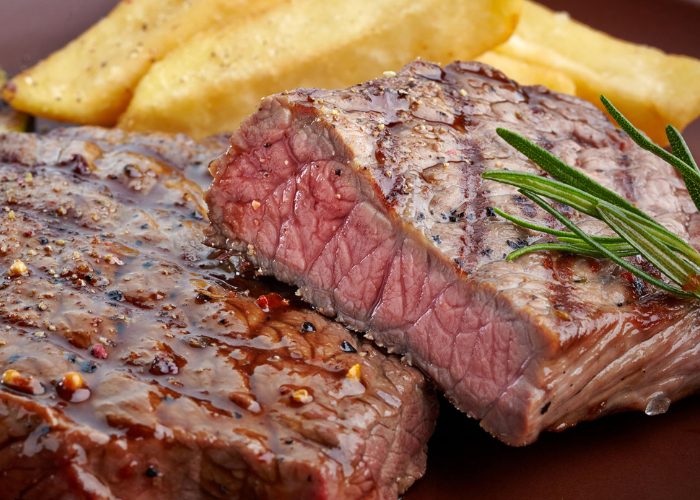
- Helps with: Long-term memory
- Dose:4mcg per day
- Foods high in Vitamin B12: Meat, eggs, fish, dairy, shellfish, tempeh, nori seaweed.[16]
What you need to know
Vitamin B12 helps us maintain healthy nerve cells and red blood cells. A vitamin B12 deficiency can result in memory loss. However, it can be restored and improved with supplements.[17]
In particular, one study found that 20 out of 60 patients with memory loss were vitamin B12-deficient.[18] Thus, memory loss may not be due entirely to Alzheimer’s disease or dementia, but rather a reversible loss caused by a vitamin B12 deficiency.[19] Taking a vitamin B12 supplement may help prevent some forms of memory loss.
3 Memory Supplements to Try
There are many memory supplements available. But we list three that help restore our brain’s natural ways to enhance memory.
Gingko Biloba[20]
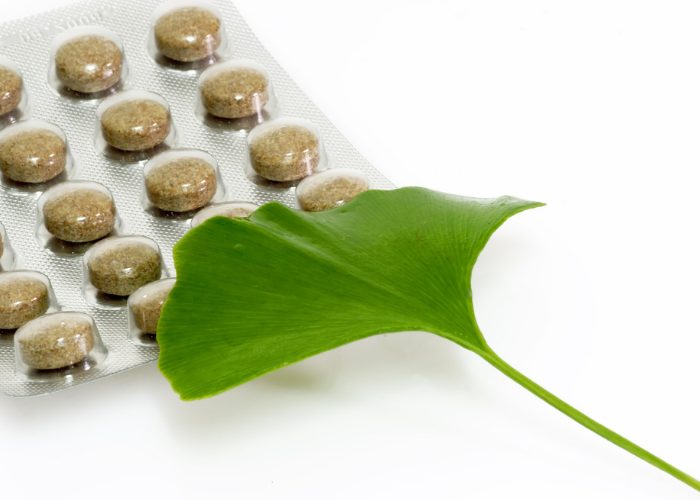
- Helps with: Short-term memory and long-term memory
- Dose: 120-240mg for cognitive enhancement, one to four hours before a test.[21] 40-120mg to prevent cognitive decline, three times a day.[22]
What you need to know
Gingko biloba is well-known as a memory supplement and countless studies evidence this. And, it can be taken both to boost memory before a test, or as a supplement to improve memory.
In dozens of double-blind studies on human subjects with dementia, gingko biloba improved or preserved memory.[23] A five-year study of elderly patients with a history of memory complaints showed that daily use of this memory supplement was linked to a zero-incidence rate of Alzheimer’s disease among all of the subjects.[24]
Another study on young, healthy subjects showed taking gingko biloba improved speed at memory tasks.[25] Gingko biloba worked to improve their concentration too.[26] Over the course of 24 hours, the subjects showed marked improvements in both delayed word recall and immediate word recall, even hours later.[27]
Dopamine
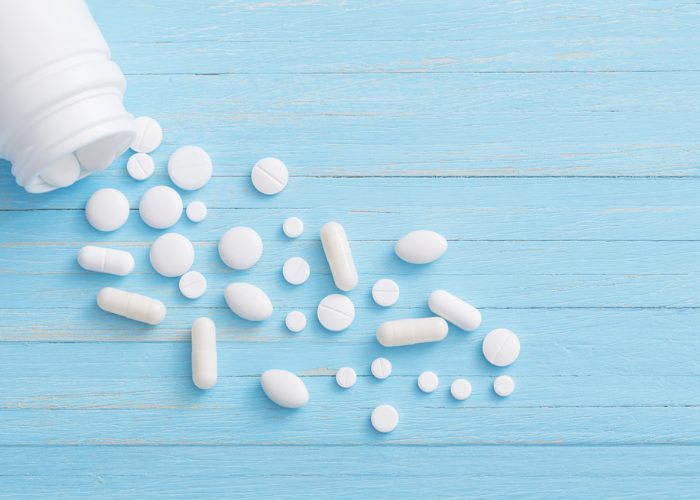
- Helps with: Long-term memory
- Dose: Mucuna Pruriens 300mg
What you need to know
New research shows that non-essential amino acids are also beneficial for how to improve memory. In particular, dopamine contributes to the natural formation of memory inside our brains.[28]
Dopamine is known as the happy hormone. As such, when we are happy, dopamine floods the brain and gives us a little happy high.[29] But, new studies show that it also affects episodic memory, which is a very specific form of long-term memory.[30] These are your personal memories of participating in events. These memories tend to be the first to go with Alzheimer’s.
Dopamine helps create permanent memories.[31] But, how does this memory supplement improve memory? Dopamine stabilizes newly formed synapses and forms long-term memories.[32]
However, lifestyle, diet, and illness can deplete dopamine. But, dopamine is available in a natural supplement called Mucuna Pruriens.
Huperzine A

- Helps with: Long-term memory
- Dose: 200mcg per day
What you need to know
Huperzine A is natural memory supplement that has improved memory in Alzheimer’s patients.[33] A study conducted over eight weeks noted that 58% of patients with Alzheimer’s disease experienced significant memory improvement due to Huperzine A.[34]
Another study shows that Huperzine A not only improved memory, but it also restored damaged memory cells. And, that it provided protective effects against further damage to the cells.[35]
Huperzine A works by strengthening the current stash of neurotransmitters in our brains. In fact, it is a natural cholinesterase inhibitor, which are the medicines prescribed for Alzheimer’s patients. So, if you are already taking a prescribed version of this medication, talk to your doctor before supplementing it with Huperzine A.
3 Foods That Improve Memory According to Science
Isn’t it great that we can all stay sharp just by eating something tasty that we enjoy?
Foods that improve memory are actually found everywhere, from beef liver to chocolate to caviar. We list a few of the most potent foods that improve memory below, with a little extra info as to why. But here’s a clue: they all encourage strong brain neurotransmissions to keep our synapses snappy!
1. Matcha green tea powder
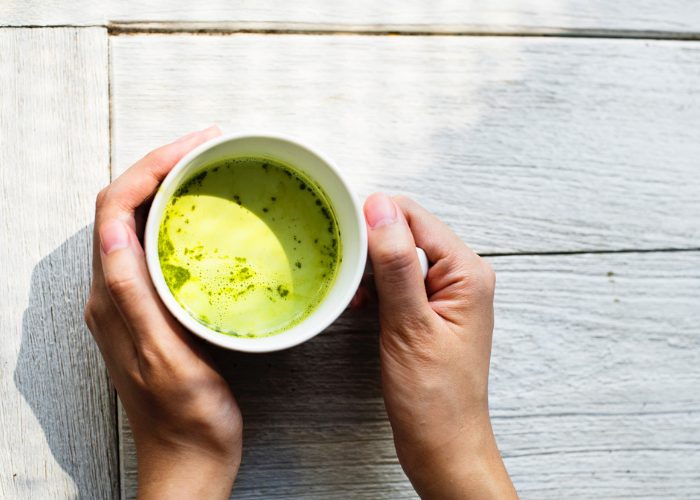
- Helps with: Short-term memory and long-term memory
- Dose: 5g of green tea
What you need to know
Matcha is green tea on steroids. The antioxidants, in particular, EGCG, in matcha improves memory, sharpens mental alertness, and slows aging.
Additionally, matcha has caffeine which improves memory. In fact, even if you drink matcha after learning something new, your memory still improves – for up to 24 hours afterward![36] Moreover, matcha contains the essential amino acid, L-theanine. And, when caffeine combines with L-theanine, it provides a great memory boost, sustains attention, and reduces distractibility.[37]
In a study on green tea and memory, subjects drank 27.5 grams of green tea. An MRI was used to view brain connectivity.[38] Green tea was proven to increase connectivity in the working memory sections of their brains.[39]
So, how to improve memory with matcha? You can drink it as a tea, add it to soups, make Green Goddess salad dressing or make matcha banana bread. Basically, anything can be made into a memory supplement with the addition of matcha.
2. Eggs
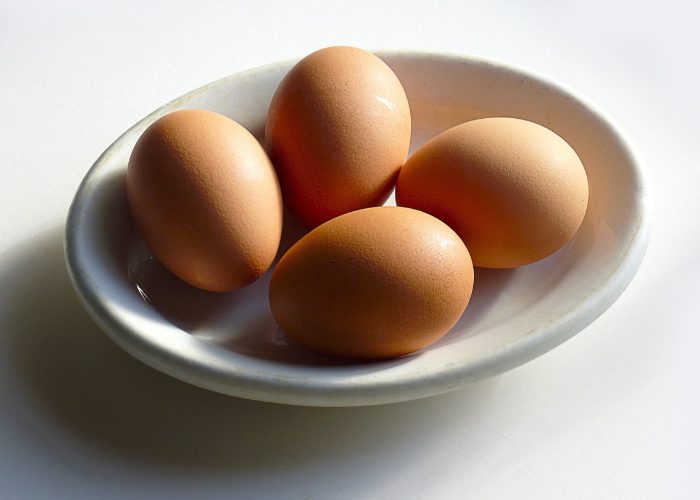
- Helps with: Short-term memory consolidation
- Dose: 425mg per day
What you need to know
One egg provides a quarter of your daily need for choline (also known as acetylcholine), one of the foods that improve memory. Eggs are a memory boosting food because they help produce a necessary neurotransmitter for memory. In fact, one study of 2,195 adults between ages 70-74 found that low choline levels caused slow perceptual speed, global cognition, and executive function.[40] Choline also helps fight Alzheimer’s disease.[41]
In another study of 1,391 adults between 36-83, those with high choline levels had better verbal and visual memory.[42]
Want to experiment with some new egg recipes? Try deviled eggs! Check out these 4 delicious and healthy deviled egg recipes next time you’re feeling peckish.
While eggs contain a very high amount of choline per serving, other foods containing choline are also great for memory:[43]
|
Foods |
Serving |
Choline content |
|
Eggs |
1 large egg, hard-boiled |
147mg |
|
Soybeans |
1 cup, roasted |
107mg |
|
Chicken breast |
3oz., roasted |
72mg |
|
Beef, ground 93% lean |
3oz., broiled |
72mg |
|
Cod, Atlantic |
3oz., baked |
71mg |
|
Mushrooms, shiitake |
½ cup, cooked |
58mg |
|
Potatoes |
1 large, baked |
57mg |
|
Beef liver |
3oz., pan-fried |
356mg |
For some meal ideas for how to improve memory with choline, check out these simple recipes:
- Enjoy a cup of roasted soybeans for a snack or add them to a green salad instead of croutons.
- Barbecue a 3oz burger and top it with shiitake mushrooms for a memory-boosting meal!
- Try baked cod with scalloped potatoes for dinner for another ideal meal for your memory.
3. Omega-3 Fatty Acids[44]
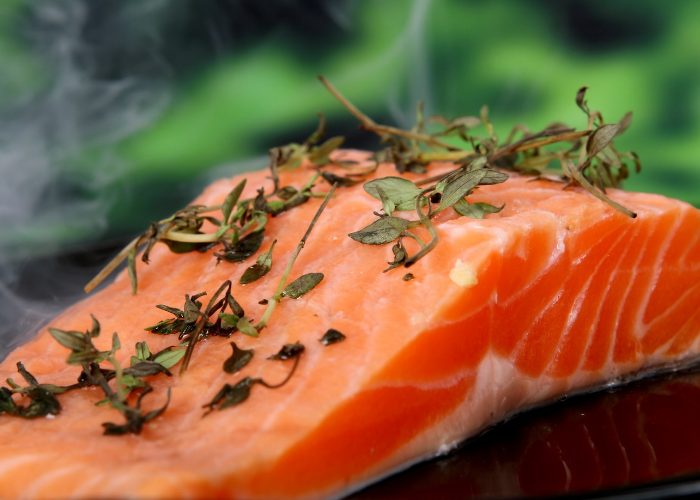
- Helps with: Short-term memory
- Dose: 600 mg of combined DHA and EPA per day. 1 to 2 grams of ALAs per day.
What you need to know
Omega-3 fatty acids boost memory, especially when they come from food instead of a memory supplement.[45] A five-year study of older adults found that eating just one seafood meal per week helped them consistently perform better on thinking skills tests than people who didn’t.[46]
Omega-3 fatty acids contain ALA, DHA and EPA. Flax seeds are the food with the most ALAs of all foods. ALAs are also found in green vegetables like brussels sprouts, spinach, and kale. But, be sure to eat foods with all the omega-3 fatty acids to ensure that your body gets a sufficient dose for boosting memory.
|
Food |
Serving |
DHA |
EPA |
ALA |
|
Salmon |
3oz |
1.5g |
0.7g |
|
|
Anchovies |
3oz |
1.3g |
0.7g |
|
|
Mackerel |
3oz |
1.2g |
0.7g |
|
|
Herring |
3oz |
1.2g |
1g |
|
|
Sardines |
3oz |
0.5g |
0.5g |
|
|
Walnuts |
1 tablespoon |
|
|
0.7g |
|
Flax seeds |
1 tablespoon |
|
|
2.2g |
Wondering how to improve memory with omega-3 fatty acids? Here are some quick and easy ideas for dinner.
- Sautée some spinach with toasted pumpkin seeds for a omega-3 packed side dish.
- Make a kale salad with toasted walnuts for a double whammy of foods that improve memory.
- Roasted brussels sprouts with baked salmon and dill are among the best foods that improve memory and concentration.
- Topping your pizza with spinach and anchovies is a great way to get more omega-3s.
Other Ways to Improve Your Memory

While we have shared some ways to boost memory, there are many more!
- Get better quality sleep. Sleep is critical to the process of memory consolidation.[47] That is, without it, our short-term memories cannot easily transfer into our long-term memory bank!
- Try brain training.[48] These fun games and speed challenges are designed to improve your memory, but does science agree?
- Meditate more. Meditation and deep breathing exercises can both help give a memory boost any time of day. But their benefits are equally beneficial to long-term memory and slowing down the aging process.
- Learn to concentrate more effectively. Give your brain a workout with mindfulness and concentration. It will help you relax and improve your memory.
- Manage stress. Extended exposure to stress can actually interfere with neurotransmitter function and weaken our neurons.[49] And, stress also increases neurotoxicity in the brain, which decreases memory.[50]

Conclusion
With all the things we have to worry about, don’t let another thing slip by. It’s so easy to protect your brain and memory from decline with these foods, vitamins, and supplements for memory. So, take it easy, and don’t forget to take your vitamins!
References
- [1] http://www.human-memory.net/brain_neurons.html
- [2] https://www.ncbi.nlm.nih.gov/pubmed/20329590
- [3] MIT. http://news.mit.edu/2017/neuroscientists-identify-brain-circuit-necessary-memory-formation-0406
- [4] http://www.human-memory.net/types_short.html
- [5] http://news.mit.edu/2017/neuroscientists-identify-brain-circuit-necessary-memory-formation-0406
- [6] The Human Memory. http://www.human-memory.net/types_short.html
- [7] https://www.ncbi.nlm.nih.gov/pmc/articles/PMC4906299/
- [8] https://www.verywellmind.com/facts-about-memory-2795359
- [9] Advances in Nutrition. https://academic.oup.com/advances/article/2/3/290/4644535
- [10] https://www.sciencedaily.com/releases/2016/08/160826083948.htm
- [11] https://www.sciencedaily.com/releases/2016/08/160826083948.htm
- [12] NCBI. https://www.ncbi.nlm.nih.gov/pmc/articles/PMC3260490/
- [13] http://practicalneurology.com/2014/02/cognitive-consequences-of-vitamin-d-deficiency¢er=37
- [14] http://practicalneurology.com/2014/02/cognitive-consequences-of-vitamin-d-deficiency¢er=37
- [15] NCBI. https://www.ncbi.nlm.nih.gov/pmc/articles/PMC5525144/
- [16] https://www.ncbi.nlm.nih.gov/pmc/articles/PMC4042564/
- [17] https://www.mayoclinic.org/diseases-conditions/alzheimers-disease/expert-answers/alzheimers/faq-20057895
- [18] Mayo Clinic. https://www.mayoclinic.org/diseases-conditions/alzheimers-disease/expert-answers/alzheimers/faq-20057895
- [19] https://www.mayoclinic.org/diseases-conditions/alzheimers-disease/expert-answers/alzheimers/faq-20057895
- [20] https://examine.com/supplements/ginkgo-biloba/
- [21] JRank. http://science.jrank.org/pages/4623/Neurotransmitter-Neurotransmitters-role-in-memory-learning.html
- [22] http://science.jrank.org/pages/4623/Neurotransmitter-Neurotransmitters-role-in-memory-learning.html
- [23] http://science.jrank.org/pages/4623/Neurotransmitter-Neurotransmitters-role-in-memory-learning.html
- [24] NCBI. https://www.ncbi.nlm.nih.gov/pubmed/22959217
- [25] https://www.ncbi.nlm.nih.gov/pubmed/12020739
- [26] https://www.ncbi.nlm.nih.gov/pubmed/12020739
- [27] NCBI. https://www.ncbi.nlm.nih.gov/pubmed/12020739
- [28] https://www.cell.com/trends/cognitive-sciences/fulltext/S1364-6613(10)00186-5
- [29] https://www.news-medical.net/news/20121109/Dopamine-improves-long-term-memory.aspx
- [30] News Medical Life-Sciences. https://www.news-medical.net/news/20121109/Dopamine-improves-long-term-memory.aspx
- [31] https://www.news-medical.net/news/20121109/Dopamine-improves-long-term-memory.aspx
- [32] https://www.news-medical.net/news/20121109/Dopamine-improves-long-term-memory.aspx
- [33] Nutrition Review. https://nutritionreview.org/2014/08/huperzine-protecting-memory-cognitive-function/
- [34] https://nutritionreview.org/2014/08/huperzine-protecting-memory-cognitive-function/
- [35] NCBI. https://www.ncbi.nlm.nih.gov/pubmed/16687166
- [36] https://www.nature.com/articles/nn.3623
- [37] https://www.ncbi.nlm.nih.gov/pubmed/28056735
- [38] Medical News Today. https://www.medicalnewstoday.com/articles/275206.php
- [39] https://www.medicalnewstoday.com/articles/275206.php
- [40] https://www.ncbi.nlm.nih.gov/pubmed/22071706?dopt=Abstract
- [41] NCBI. https://www.ncbi.nlm.nih.gov/pubmed/12917896?dopt=Abstract
- [42] https://www.ncbi.nlm.nih.gov/pubmed/26271904?dopt=Abstract
- [43] https://ods.od.nih.gov/factsheets/Choline-HealthProfessional/
- [44] Harvard Health. https://www.health.harvard.edu/staying-healthy/do-omega-3s-protect-your-thinking-skills
- [45] https://www.health.harvard.edu/staying-healthy/do-omega-3s-protect-your-thinking-skills
- [46] https://www.health.harvard.edu/staying-healthy/do-omega-3s-protect-your-thinking-skills
- [47] NCBI. https://www.ncbi.nlm.nih.gov/pmc/articles/PMC3768102/
- [48] NCBI. https://www.ncbi.nlm.nih.gov/pmc/articles/PMC4169294/
- [49] https://www.verywellmind.com/facts-about-memory-2795359
- [50] https://www.researchgate.net/publication/322945742_The_Effects_of_Chronic_Stress_on_the_Human_Brain_From_Neurotoxicity_to_Vulnerability_to_Opportunity


